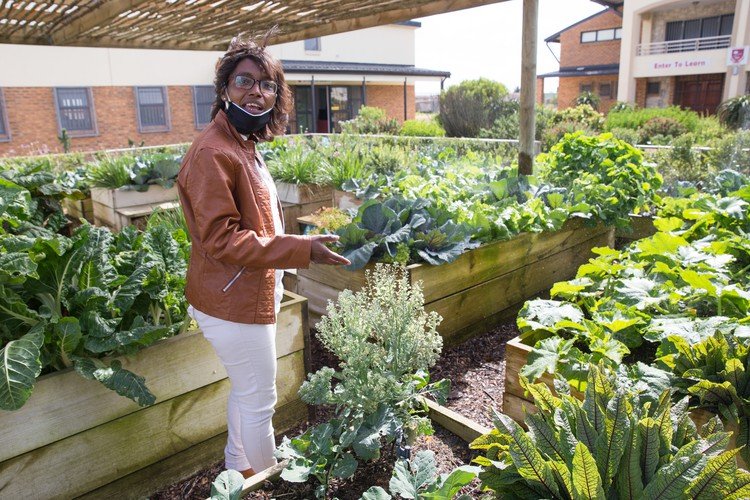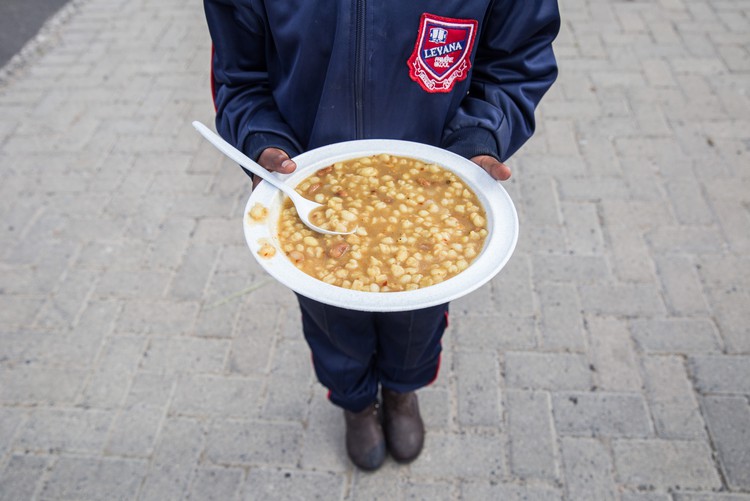Levana Primary School in Lavender Hill is one of 1010 Western Cape schools that depend on government’s National School Nutrition Programme (NSNP) feeding scheme. The school has 1090 learners. Only half of them attend at any one time because of rotational classes introduced due to Covid-19, but “those children must still eat”, says Shamiega Charity, Acting Principal at Levana Primary.
Before the pandemic, she says they were feeding 300 to 400 children. The numbers have doubled.
Once the learners are fed, any remaining food is distributed to the community. At the start of the lockdown, the school would feed up to 800 children and people in the community. “We would run out of food,” she said.
A grade 7 learner told GroundUp that she will sometimes take a loaf of bread home for her family.
Lavender Hill has “severe poverty”, gangsterism, unemployment and substance abuse, says Charity. Teenage pregnancies are “the norm once you leave primary school” and “because the parents are young, they don’t know how to be a parent”. Most learners live in crowded shacks, some located right next to the school’s bulletproof fence. Children need clothes and food to take home; teachers assist where they can, she says.
Levana Primary was established in 1977 and is a no-fee school. The feeding scheme started over 13 years ago with peanut butter and bread. Today, the school has two organic vegetable gardens growing lettuce, potatoes and spring onions. There is also a medicinal and fynbos garden. As an eco school, environmental issues and sustainability are taught as part of the syllabus.
The food is sponsored by a network of organisations and people, but it is largely dependent on the NSNP.
“The program provides funding to the school to purchase the required cooking equipment and eating utensils, as well as for the monthly gas purchases for cooking. There are two food preparers funded by the NSNP, as well as three gardeners to assist with food production,” says Kerry Mauchline, spokesperson for education MEC Debbie Schäfer.
The NSNP provides dry food items to the school every second week and fresh produce such as fruit, vegetables and milk twice a week. Five days a week children are fed two meals a day. On Monday, it’s fish breyani, Tuesday, samp and beans, Wednesdays and Thursday, vegetables, and Friday, soup or breyani.
“For many of these children, a school meal might be the only one they have that day,” says Mauchline.
The situation has got dramatically worse because of the Covid-19 pandemic. In the Western Cape, 473 174 learners are registered on the program, she says.
Children can’t focus on learning if they are hungry, says Charity.
She says one day she would like there to be a food dining hall where the children can sit together and eat around a table.


